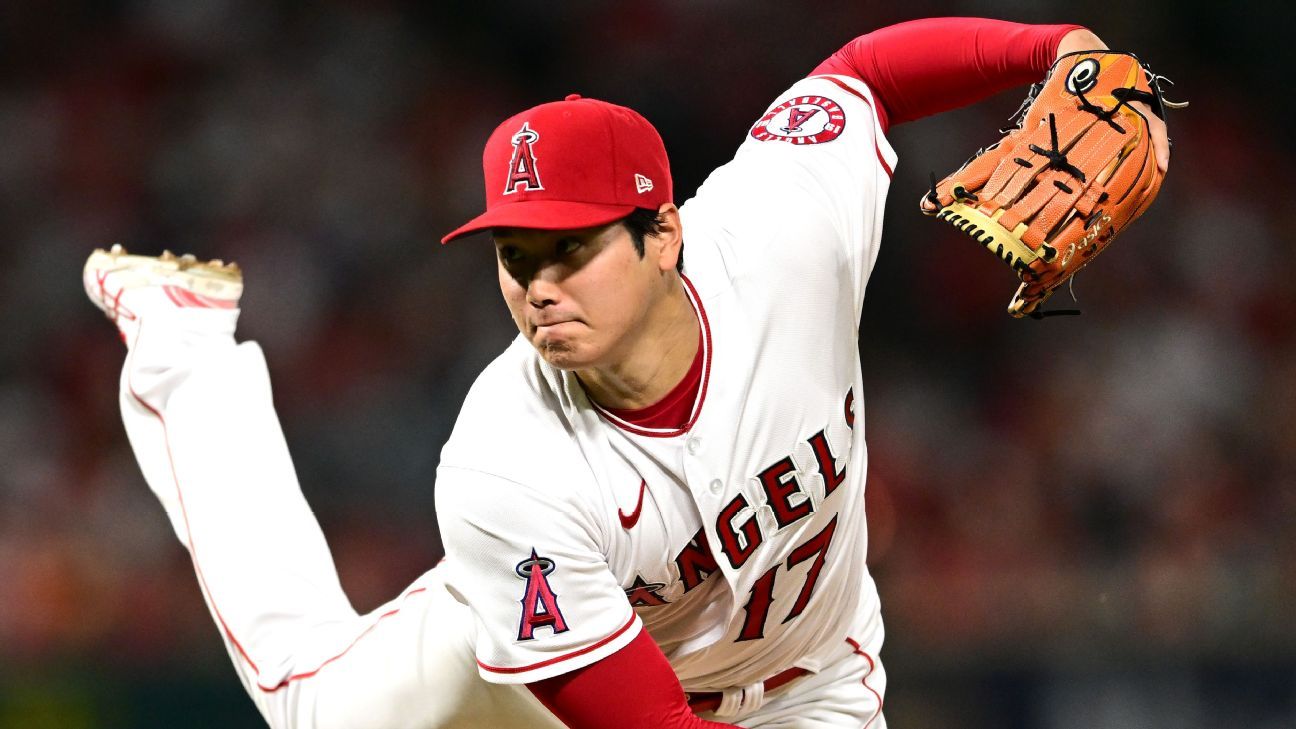TEMPE, Ariz. — The Los Angeles Angels seemingly have no idea if Shohei Ohtani will be with them next year, but they do know this: He will start on Opening Day.
Shortly after Ohtani wrapped up his first spring training session with the media — during which he mostly evaded questions about his potential free agency — Angels manager Phil Nevin called him into his office to inform him he would be the starting pitcher for the team’s first game of the season, March 30 in Oakland.
Nevin called delivering the message “an honor,” but there was also a strategic element involved.
“We want him to pitch as often as he can without pushing it too far,” Nevin said. “The days he’s ready to pitch, we’re going to have him penciled to pitch.”
The Angels won’t go with a strict six-man rotation. Instead, they’ll treat their sixth starter as something of a swing man, using him as a starter if the team plays at least six consecutive days without an off day and otherwise using him as a reliever.
It means most, if not all, of Ohtani’s starts will come on five days’ rest as opposed to six.
Ohtani has made 18 career starts on five days’ rest and has put up a 1.85 ERA in those games. He has a 3.48 ERA in 45 starts with six or more days’ rest.
“I pitched on five days’ [rest] a few times last year and I think my numbers were pretty good,” Ohtani said through his interpreter. “Never experienced it throughout the season in the long run, so I can’t really tell you, but we’ll see how it goes.”
“We’ll see” is a term universally applied to Ohtani’s walk year. The 28-year-old star will make $30 million in his final year of arbitration, and if he puts together a third consecutive season as a transcendent two-way player, the industry consensus seems to be that he’ll attain a $500 million-plus contract in free agency — a record for an athlete in North American sports. Some have gone as high as the $600 million range in their predictions.
Asked about being linked to those astronomical figures, Ohtani was noticeably coy, even by his standards.
“I’m not really an expert with the free agent market and I don’t really want to get into it,” Ohtani said. “Like I said earlier, I just want to focus on this season. My goal is to win a championship. That’s my focus.”
If there’s one safe presumption that can be made about Ohtani at this point, it’s that residing on a team that can consistently win will be a major focus when it comes to deciding his baseball future. The Angels haven’t gone into a full rebuilding phase in decades, but they’ve also made the postseason only once in the past 13 years and haven’t finished with a winning record since 2015.
With Ohtani, Mike Trout and Anthony Rendon absorbing most of the payroll, the Angels focused this offseason on midtier players who could deepen their roster, acquiring outfielder Hunter Renfroe, infielders Gio Urshela and Brandon Drury, starting pitcher Tyler Anderson, and relievers Carlos Estevez and Matt Moore, the latter of whom signed a one-year, $7.55 million contract on Thursday.
The Angels’ payroll is above $200 million, but high payrolls have not translated to winning in recent years, largely because the organization has failed to develop players from its minor league system.
Asked if he believes the Angels are as committed to winning as he is, Ohtani said: “I do firmly believe that the Angels are on the same page as me. They want to win as much as I do. But I can’t really tell you what they really are thinking. But I would like to believe that.”
